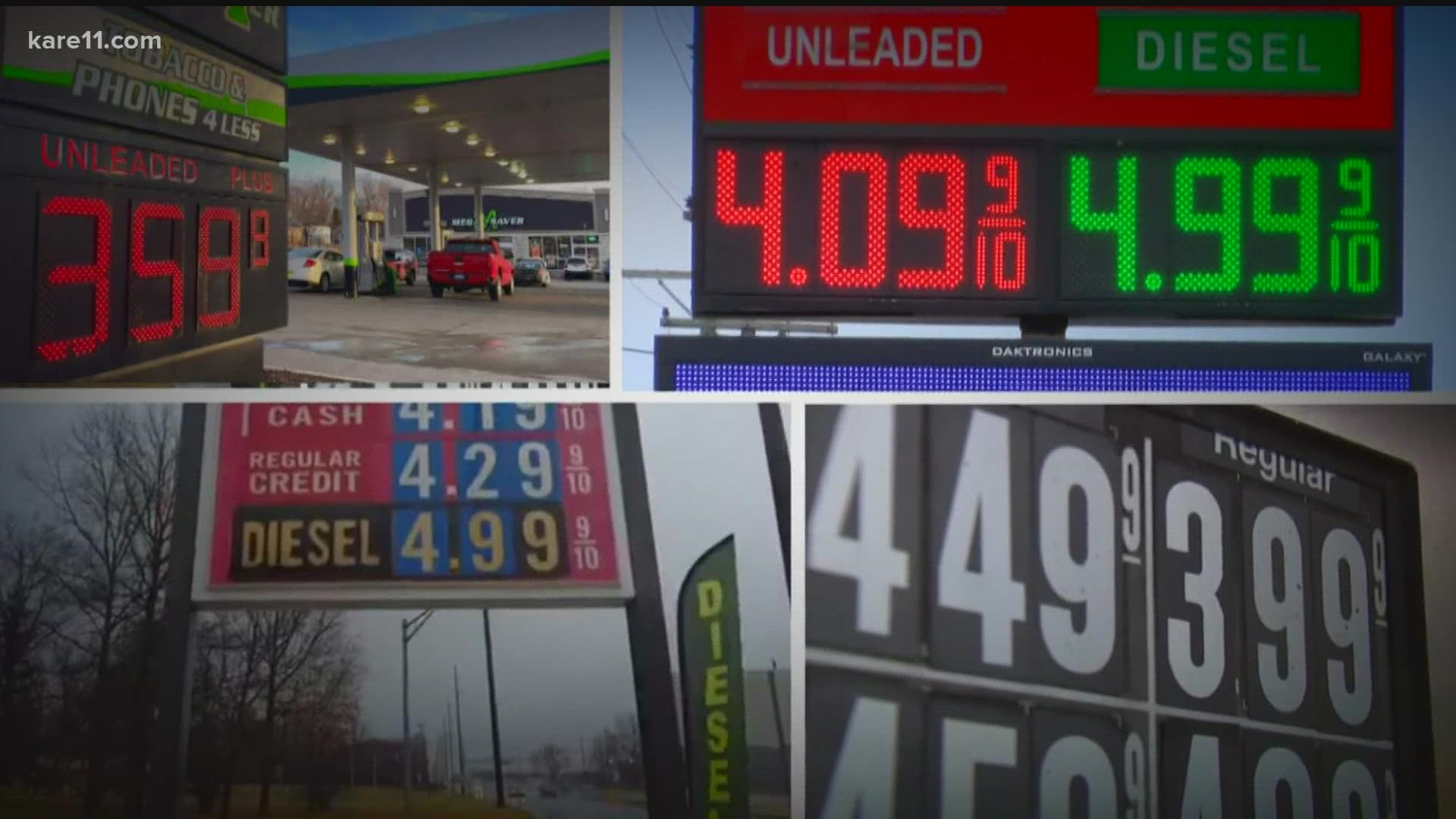MINNEAPOLIS — Gas prices keep climbing to record highs. According to AAA, the national average for a gallon of regular gas topped $4.32 a gallon for the first time on Thursday morning. Here in Minnesota, it hit $3.95.
In response to the record prices, Gov. Tim Walz was among a group of six Democratic governors calling for a suspension of the federal gas tax through the end of 2022. Meanwhile, a group of Democrats in the Minnesota legislature are calling for a state gas tax holiday from Memorial Day to Labor Day.
The federal gas tax is 18.3 cents a gallon and the state tax is 28.5 cents, so a holiday from both, would drop the cost by nearly 47 cents a gallon, but experts say the math likely wouldn't be that simple for drivers.
"I do see the economic rationale for why this might not be the best of ideas,"
Professor Akshay Rao isn't trying to be a buzzkill, but as Chair of Marketing for the University of Minnesota Carlson School of management, he says gas tax holidays are about more than simple math and overall cost.
"Drive around the Twin Cities if you want and look at the variation of gasoline prices from one station to the next in the same neighborhood," Rao said. "These prices are reflective of differences in demand, not the differences in the cost of the inventory that the gas station is holding."
Right now, he says demand is being driven by more than the price alone.
"In today's world, consumers' willingness to pay for gasoline is being driven by perceptions of inflation, the war in Ukraine and their own expectation that gas prices will keep increasing," Rao said.
Though a gas tax holiday might help that price expectation, as long as inflation and a war keep escalating, he says prices will eventually follow.
Akshay Rao: "Immediately, if consumers expect prices will drop, then firms would rationally drop their prices, but over time it could go back up because consumer expectations about the price of gas is being driven by all these other factors. What's the net effect? The government loses revenue from the gas tax."
Kent Erdahl: "Some might be asking, if the state and federal government each have plenty of money right now, why not suspend it for a little? Won't anything help?"
Rao: That's a fair point, but the way to think about it is, who will it benefit? If it turns out that prices are set by consumer's willingness to pay, then prices will go up again. Then the government is not generating revenue off of those prices and who is benefiting? The corporations that are selling the gasoline."
Watch more Breaking The News:
Watch all of the latest stories from Breaking The News in our YouTube playlist:

